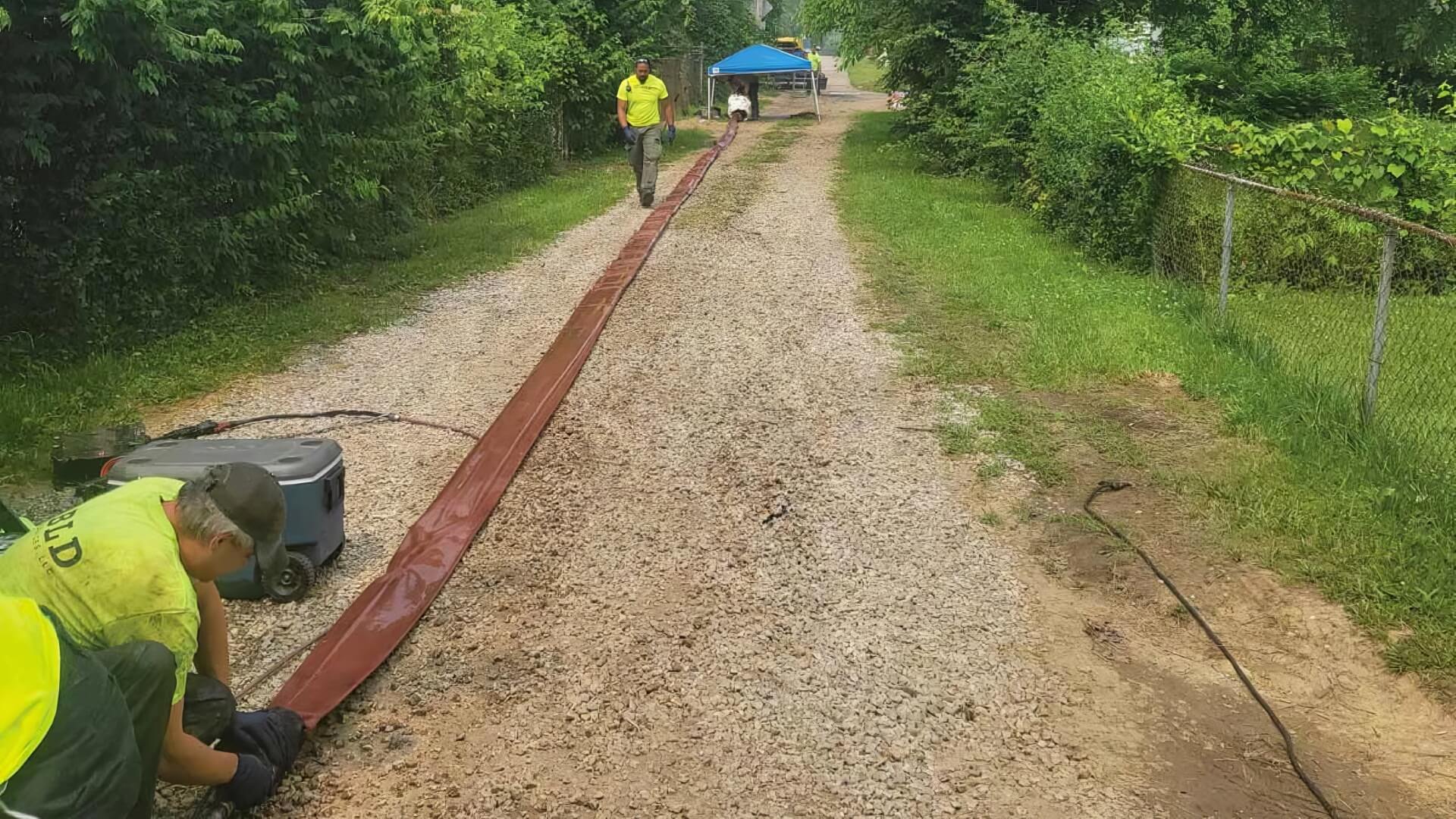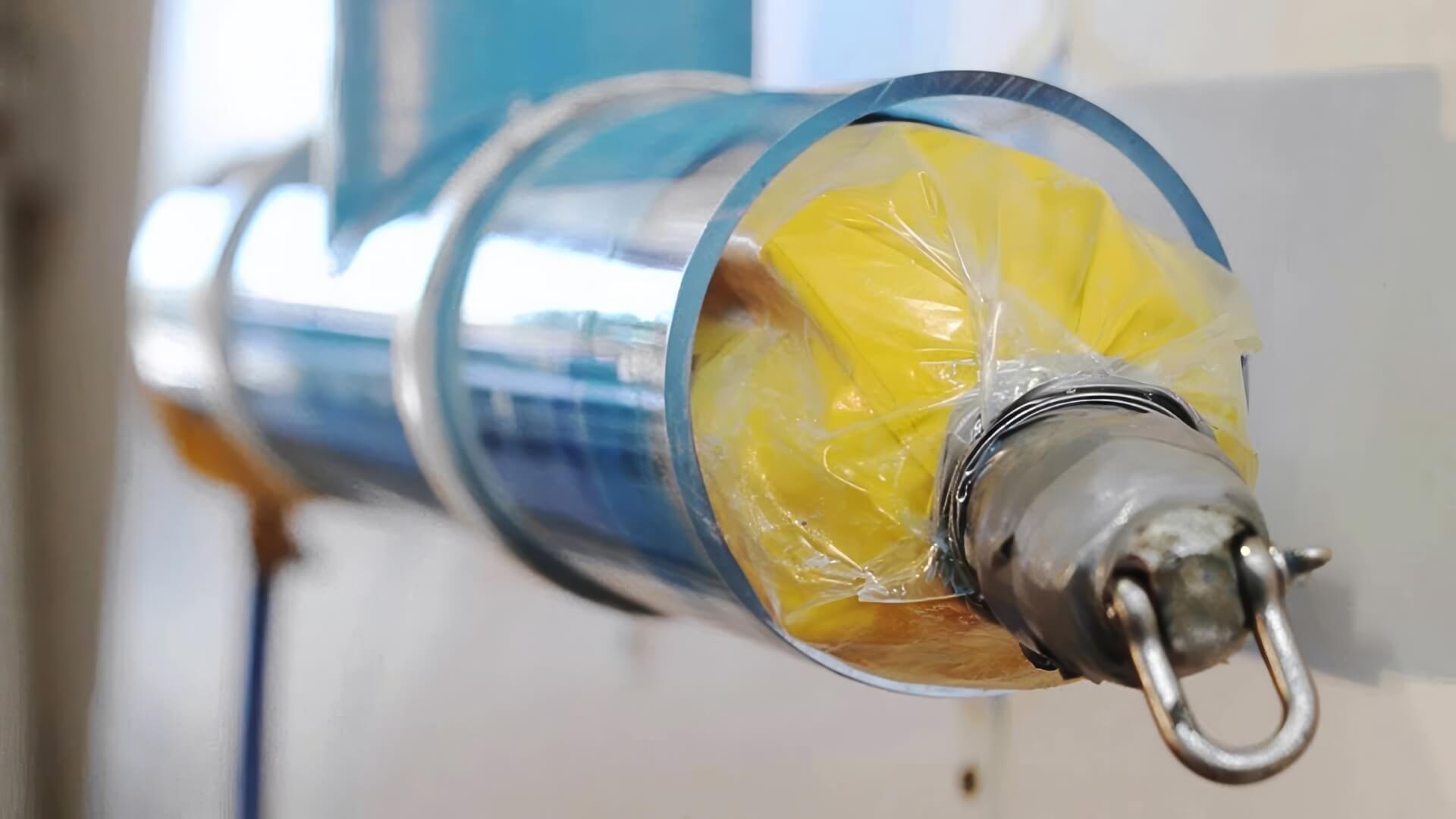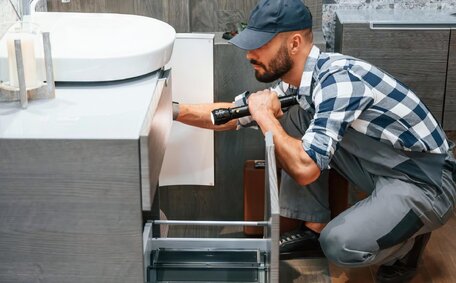Common Household Plumbing Disasters
Plumbing issues are unfortunately common in many homes. Some of the most troublesome plumbing disasters homeowners may face include:
- Clogged drains - Kitchen sinks, bath tubs, and toilets can easily get clogged with hair, grease, and other debris, leading to blocked drains. This can cause water to back up and flood if not addressed promptly.
- Leaky pipes or taps - Dripping taps waste water and leaky pipes can lead to costly water damage. Catching leaks early is key.
- Burst pipes - In winter, frozen pipes can burst and flood a home. Knowing how to shut off water and calling a plumber quickly reduces damage.
- Faulty water heaters - Malfunctioning water heaters can leak and flood a home. Annual inspections help spot issues before failure.
- Low water pressure - Improper home water pressure can reduce flow from fixtures. Checking pressure regularly prevents problems.
- Gas leaks - Faulty gas connections and appliances can leak, putting inhabitants at risk. Checking for gas odours and calling the gas company is critical.
Being proactive with plumbing maintenance, knowing signs of common issues, and calling a professional plumber promptly can help minimise household plumbing disasters.
Quick Actions to Take
When faced with a plumbing emergency, quick action is essential to minimise water damage and costly repairs. Here are some key steps to take:
- Locate the main water shut-off valve - Knowing where this is and how to turn off the water supply prevents additional flooding.
- Stop using water immediately - Turn off dishwashers, washing machines and avoid flushing toilets. Limit water use until the issue is fixed.
- Contain the leak if possible - Place buckets under dripping pipes or leaks and mop up excess water.
- Check for electrical dangers - If water is near electrical outlets or appliances, turn off power at the main breaker.
- Call a professional plumber - They can properly diagnose issues and make repairs.
- Document damage - Take photos for insurance claims. Get professional restoration if needed.
- Prevent pipes freezing in winter - Insulate pipes, seal cracks letting cold air inside, and keep faucets trickling during sub-zero weather.
By staying calm, making safety a priority, and contacting a plumber promptly, you can minimise damage from plumbing emergencies.
DIY Solutions for Plumbing Disasters
When minor plumbing issues arise, DIY solutions can help avoid disasters. Here are some useful tips:
- Dripping faucets - Replace worn washers and O-rings to stop leaks. Turning off water before repairs prevents being sprayed.
- Clogged drains - Try using a plunger, drain snake, baking soda and vinegar, or commercial drain clearer before calling a plumber.
- Leaky toilet - Check the water level in the tank and ensure the float moves up and down smoothly. Replace the flapper valve if worn.
- No hot water - Reset buttons on electric water heaters or relight the pilot on a gas heater if it goes out.
- Frozen pipes - Wrap pipes with insulating material. Thaw with a hairdryer if ice blocks appear.
For more complex plumbing repairs, don’t hesitate to call a professional. But taking care of minor issues promptly can help avoid costly disasters.
When to Call a Professional
While DIY plumbing solutions are helpful for minor issues, more complex plumbing repairs require professional expertise. It’s best to call Padstow Plumbing for:
- Major leaks causing extensive water damage
- No hot water due to water heater malfunctions
- Low water pressure throughout the home
- Sewer line clogs that persist after trying a drain snake
- Gas leaks suspected due to strange odours or sounds
- Major flooding from burst pipes, especially in finished spaces
- Fixing pipes that have frozen and burst
- Re-piping or major drain repairs
- Installing new fixtures like toilets or sinks
- Any time you are unsure about the cause or solution for a plumbing issue
Our licenced professionals have the expertise to diagnose complex plumbing problems and make repairs correctly the first time. For major issues, don’t take risks attempting DIY repairs. Call Padstow Plumbing for prompt and professional emergency or scheduled plumbing services.
Preventive Measures and Maintenance
Being proactive with plumbing maintenance can help prevent minor issues from becoming major disasters. Here are some useful preventive measures:
- Inspect exposed pipes and joints regularly for leaks, corrosion and other damage. Address minor leaks promptly.
- Check water pressure at various fixtures monthly. Pressure should be 45 - 80 psi.
- Flush drains weekly with hot water to clear grease and debris. Use chemical drain cleaners twice a year.
- Inspect water heater tanks annually and flush them to remove sediment that can cause corrosion.
- Have a professional inspect gas lines and appliances yearly to check for leaks.
- Insulate pipes in unheated areas to prevent freezing in winter.
- Clean sink, tub and shower drains regularly to prevent clogs.
- Trim overhanging tree branches that could interfere with sewer and drain pipes.
- Update old fixtures and appliances that are prone to leaks, like washing machines or toilets.
Scheduling annual plumbing inspections and performing simple preventive maintenance tasks can help avoid costly plumbing disasters in your home.
Tips on How to Prevent Plumbing Issues in Your House
Taking proactive steps to maintain your plumbing system can prevent many issues in your home. Here are some useful tips:
- Inspect pipes and joints regularly for leaks or corrosion and address any minor issues promptly.
- Know where your main water shutoff valve is located in case you need to turn off the water in an emergency.
- Don’t pour fats, oils or harsh chemicals down drains to avoid clogs.
- Install strainers over drains to catch hair and food debris before it causes blockages.
- Flush drains weekly with hot water and use a drain snake periodically to clear buildup.
- Update old pipes and fixtures that are prone to leaking, like galvanised pipes or water heaters over 10 years old.
- Insulate pipes in unheated areas like attics, basements or garages.
- Clean sink and tub drains regularly to allow water to drain freely.
By taking simple preventive measures and addressing minor issues early, you can avoid costly plumbing disasters in your home.
The Importance of Regular Plumbing Maintenance
p>p>
Schedule Professional Inspections and Maintenance
To keep your plumbing system running smoothly, it is wise to schedule yearly professional inspections and preventative maintenance. Trying to save money doing it yourself can often lead to bigger problems down the road.
A professional plumber has the experience to thoroughly inspect all areas of your plumbing and identify potential problems that you may miss. They can check water pressure, pipe condition, flush out drains to remove blockages, and assess whether fixtures need repairs or replacement.
inspections, regular professional drain cleaning, water heater flushing and tune-ups extend the life of your system. Professionals can also check that gas lines and appliances are leak-free for safety.
Padstow Plumbing offers reliable plumbing inspections and maintenance services to prevent issues before they become plumbing disasters. Investing just a little in preventative care can save thousands in emergency repairs down the road. Protect your home with scheduled professional plumbing maintenance.
Conduct Visual Inspections for Leaks and Damage
Carrying out regular visual inspections of your plumbing system is a helpful way to catch small leaks or damage before they turn into major issues. Here are some tips for inspecting your plumbing:
- Check exposed pipes, joints, valves and fittings for signs of water, rust, mineral deposits or damage. Address any small leaks right away.
- Inspect under sinks for pooling water and around toilets, tubs, showers for dripping or moisture.
- Look for wet spots on walls or ceilings that may indicate an unseen leak.
- Test toilets for smooth flushing and proper water levels in the tank.
- Turn on all faucets and shower heads and check for flow and leakage issues.
- Run the dishwasher and washing machine and check for leaks.
- Scan the water metre when no water is running to check for creeping usage that may signal a leak.
Making plumbing inspections part of your regular household maintenance helps prevent costly plumbing disasters down the road. Catching and addressing minor leaks promptly is your best defence against major damage to your home.
Common Causes of Plumbing Disasters
p>p>p>p>p>p>
Pipe Bursts Due to Freezing
Pipes can burst when water inside them freezes and expands. Pipes can burst when water inside them freezes and expands.
Pipes in unheated indoor spaces like attics, crawl spaces or garages are most vulnerable. Pipes in unheated indoor spaces like attics, crawl spaces or garages are most vulnerable.
Insulating pipes before winter comes can help prevent freezing. Pipe wraps, heat tape and foam covers are available at hardware stores. Pipe wraps, heat tape and foam covers are available at hardware stores.
Properly sealing any cracks or openings where cold air can reach pipes is also critical.
If you have pipes that tend to freeze in winter, schedule a professional inspection. A plumber can map out problem areas and recommend the best insulation and heat sources. Taking proactive steps to winterize your plumbing system will help avoid burst pipes and flooding disasters.
Drain Clogs from Debris Buildup
One of the most common causes of plumbing disasters is clogged drains due to the gradual buildup of debris over time. Hair, soap scum, grease, food particles and other materials can slowly accumulate in drain pipes. Eventually, this leads to major blockages that prevent water from draining properly.
Installing drain covers and screens can help catch debris before it builds up. It’s also wise to avoid pouring fats or harsh chemicals down drains. Using a drain snake every few months helps clear the pipes of accumulated gunk and keep water flowing freely.
For severe clogs, baking soda mixed with vinegar can help break up the blockage when poured down the drain. If that fails, a commercial drain cleaner or professional plumber may be needed. Left untreated, clogs can back up drains throughout the home and cause water damage or unhealthy mould issues.
Staying vigilant and using preventive measures to keep drains clear of debris buildup will help avoid costly plumbing disasters down the road.
Proactive Plumbing Maintenance Tips
- Address minor leaks promptly.
- Check water pressure at various fixtures monthly. Pressure should be 45 - 80 psi.
- Flush drains weekly with hot water to clear grease and debris. Use chemical drain cleaners twice a year.
- Inspect water heater tanks annually and flush them to remove sediment that can cause corrosion.
- Have a professional inspect gas lines and appliances yearly to check for leaks.
- Insulate pipes in unheated areas to prevent freezing in winter.
- Clean sink, tub and shower drains regularly to prevent clogs.
- Trim overhanging tree branches that could interfere with sewer and drain pipes.
- Update old fixtures and appliances that are prone to leaks, like washing machines or toilets.
Scheduling annual plumbing inspections and performing simple preventive maintenance tasks can help avoid costly plumbing disasters in your home.t;p>p>p>p>p>p>p>p>p>p>p>p>
DIY Plumbing Maintenance Tasks
p>p>p>p>p>p>p>p>p>p>
Fixing Leaks Promptly
p>p>p>p>p>p>p>p>p>p>p>p>p>
Clearing Clogged Drains
p>p>p>p>p>p>p>p>p>p>
What to Do in a Plumbing Emergency
Plumbing emergencies like burst pipes, gas leaks or flooding can cause severe damageto take if a plumbing disaster strikes:
- Turn off the main water shut off valve - This is cruclem and causing more flooding.
- If there is an electrical danger, shut off power at the main breaker. Never touch standing water near outlets.
- Contain the leak if possible by mopping up water or placing buckets under drips.
- Avoid using any water until the problem is identified and fixed.
- Check for hidden leaks by looking for water stains or moisture under sinks, near toilets and behind walls.
- Call a 24 hour emergency plumber right away so repairs can be made promptly.
- Take photos of damage for insurance claims before starting cleanup.
- If pipes have frozen, never use direct heat like a torch to thaw them. This can cause fire risk.
- If pipes have burst, turn off water immediately to prevent flooding, call a plumber and only return when repairs are complete.
Staying calm, making safety a priority and contacting professional help quickly can significantly reduce damage and costly repairs after a plumbing emergency.






